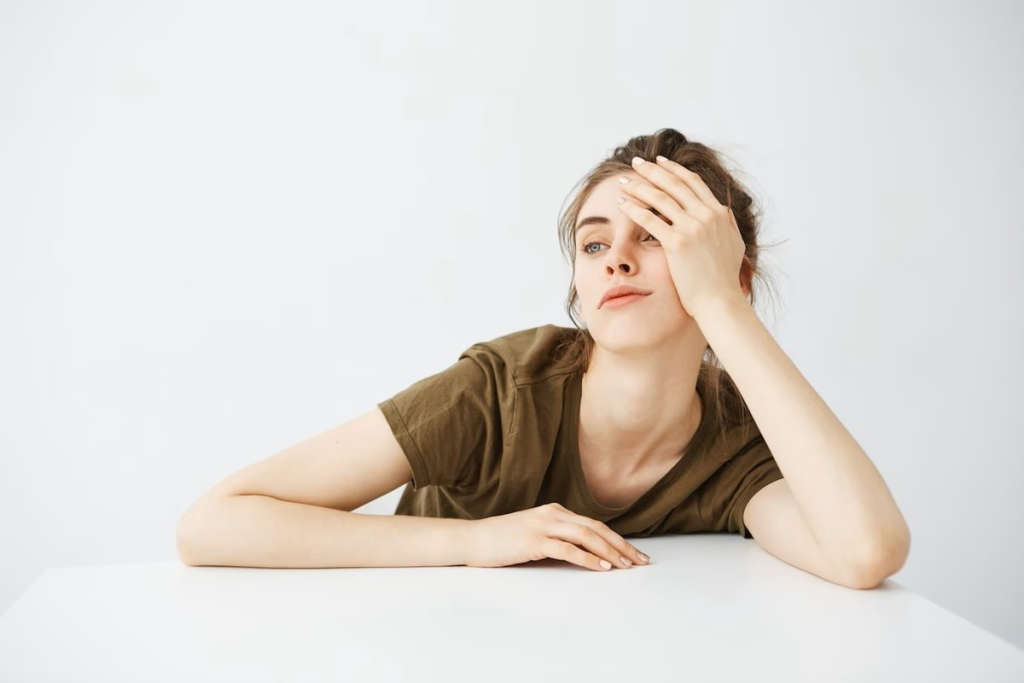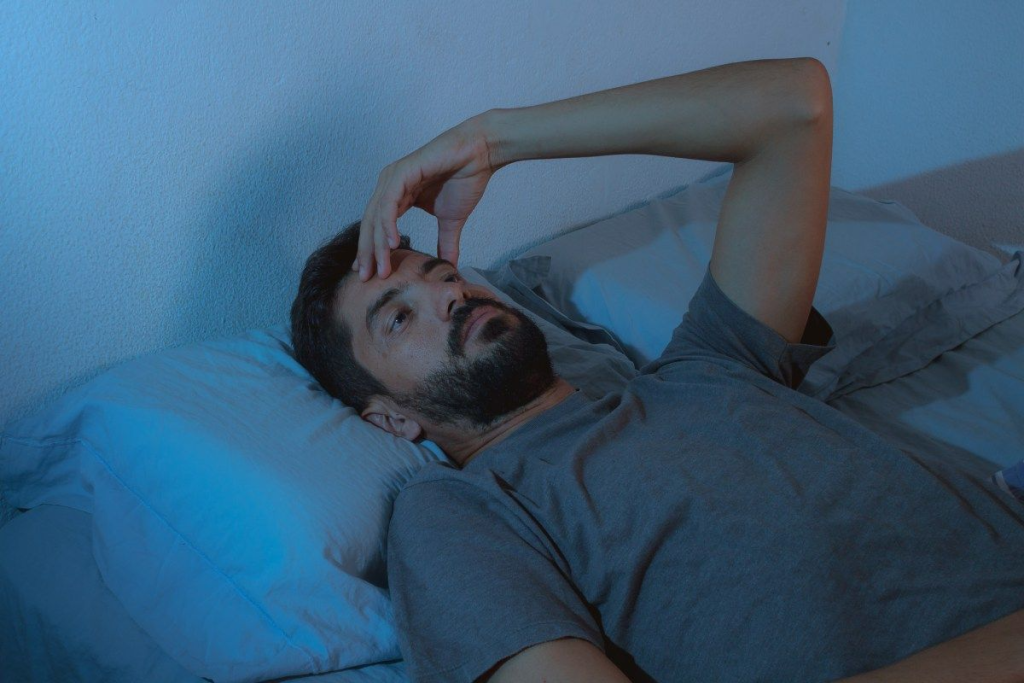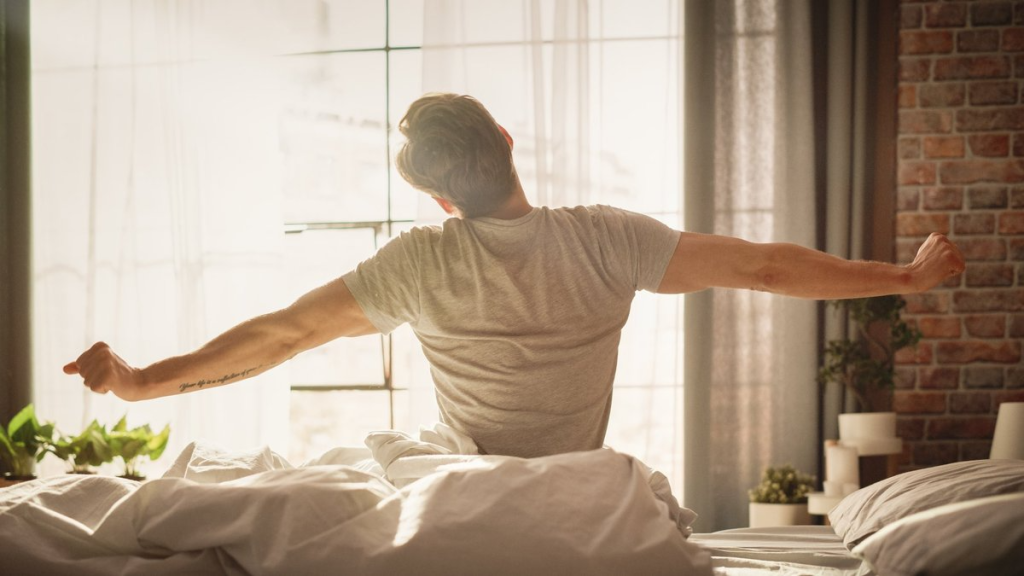Waking up in the morning can be hard, often due to depression, anxiety, or sleep issues. Dysania is when you find it hard to get out of bed. It’s not officially a medical term, but knowing what causes it is key to feeling better.

Dysania makes everyday life tough. Places like LivHospital have advanced treatments for it. By looking into what causes dysania, we can find ways to tackle morning blues.
The term Dysania means having a hard time getting out of bed. It’s linked to clinomania, which is a strong desire to stay in bed. Knowing about Dysania helps us find ways to manage it better.

Dysania makes it hard to get up from bed or leave it. It’s more than just feeling tired. It can really mess up your day. Research shows that many people around the world deal with Dysania.
Many things can cause Dysania, like health problems, lifestyle, and mental health. Knowing these can help us tackle Dysania’s causes.
While many feel tired in the morning, Dysania is much worse. Normal morning tiredness goes away quickly. But Dysania lasts longer, making it hard to start the day.
It’s key to know that Dysania is different from regular morning tiredness. This helps us find the right help and ways to manage it.
Dysania is more than just being lazy or lacking motivation. It’s a real struggle that affects many people. It impacts their daily lives and overall well-being.

The brain’s wake-up process is complex. Sleep inertia, feeling groggy upon waking, is a big part of Dysania. It’s hard for people with certain brain conditions or disorders.
Research shows sleep inertia can last from minutes to hours. It makes it hard to do daily tasks. Sleep quality, duration, and timing also play a role. ADHD can make it even tougher to start the day.
Sleep inertia and Dysania are closely linked. It’s not just a symptom but also a cause of morning struggles. Knowing this helps us find ways to beat these morning blues.
Many things can affect sleep inertia, like sleep disorders and lifestyle choices. Fixing these issues is key to reducing sleep inertia and Dysania.
By looking into the brain’s wake-up process and sleep inertia, we can understand Dysania better. This helps us find ways to help people overcome their morning resistance.
It’s important to know why you struggle in the mornings. Dysania can be caused by many things. Finding the right way to deal with it is key.
Dysania is often linked to mental health issues like depression and anxiety. These can make it hard to start the day feeling good.
It’s important to tackle these mental health issues to help with dysania. Getting help from a therapist or counselor can be a big step.
Sleep problems are a big part of dysania. Issues like sleep apnea, insomnia, and restless leg syndrome can mess up your sleep. This makes mornings hard.
Clinimania shows how complex morning resistance can be. It highlights the need to fix sleep problems.
How you live your life also affects dysania. Irregular sleep, not moving enough, and a bad sleep space can all make mornings tough.
Knowing and fixing these common causes of dysania is a big step. It helps you understand and manage your morning struggles better.
Struggling to wake up in the morning can be tough. It’s important to look into professional help for dysania. Even though it’s not an official diagnosis, it often needs expert care.
If you find it hard to get out of bed or if you’re always tired, it’s time to see a doctor. They can find out what’s causing your morning struggles.
Key indicators that you should seek professional help include:
Cognitive Behavioral Therapy for Insomnia (CBT-I) is a great way to tackle sleep problems. It helps change negative thoughts and behaviors that affect sleep.
The CBT-I process typically involves:
Sometimes, you need medical help for dysania. This could be for sleep disorders, depression, or anxiety.
Potential medical interventions include:
By getting professional help, you can improve your mornings and overall health.
Creating a consistent sleep routine is key to beating Dysania and starting your day right. Good sleep hygiene starts with a sleep-friendly environment and a regular sleep schedule.
Your sleep space greatly affects your sleep quality. To improve it, focus on these points:
Consistency is vital for sleep patterns. To build a healthy routine:
Knowing about sleep inertia and ADHD helps tackle morning wake-up issues.
Evening rituals help your body know it’s time to sleep. Try these activities:
Understanding clinomania definition helps tackle morning challenges and improve your sleep routine.
By using these tips, you can make a sleep routine that eases morning struggles and prepares you for a great day.
To beat Dysania, start with the right morning strategies. These techniques can make mornings easier and more positive.
Waking up slowly can make mornings less scary. Exposure to natural light or a light therapy box helps set your body clock right.
“The secret to beating morning sleepiness is how we wake up,” says an expert. “Slow wake-up methods can really change how we feel in the morning.”
Having a morning plan can keep you focused. Try achievable goals like meditation, journaling, or a short workout. A clear plan makes mornings more meaningful.
Moving your body soon after waking fights off morning sleepiness. It doesn’t have to be hard; even gentle stretching or a short walk helps. Exercise boosts alertness and energy.
“Exercise is a powerful brain booster, and morning exercise sets a positive day tone,” says fitness expert John Doe.
By using slow wake-up methods, morning plans, and exercise, you can beat Dysania. This makes mornings better for everyone.
Dysania, or clinomania, can be tough to beat, but there’s hope. Emotional and mental wellness strategies offer a way to find lasting relief. It’s about tackling the emotional and mental roots of Dysania.
Mindfulness is a big help in dealing with Dysania’s emotional and mental sides. Adding mindfulness to your day can make it easier to face Dysania’s challenges.
Mindfulness, like meditation and deep breathing, helps you understand your thoughts and feelings better. This makes it simpler to get out of bed in the morning. Regular mindfulness can also lower stress and improve mood.
Start with short mindfulness sessions and grow them as you get more comfortable. Guided exercises are great for beginners.
Adding purpose to your mornings can beat Dysania. Having clear goals and intentions gives you direction and motivation. This makes starting the day easier.
Creating a morning routine that matters to you connects you with your values. Spend time reflecting, journaling, or doing things that make you happy.
Self-compassion is key on tough days when you don’t feel like getting up. It’s about being kind and understanding to yourself, just like a friend.
Practice mindfulness, accept your feelings, and remember it’s okay to have bad days. Being kind to yourself reduces stress and anxiety, helping you manage Dysania better.
Understanding Dysania and its causes is key to managing it. By using effective morning strategies and focusing on emotional and mental health, people can beat Dysania’s challenges.
Having a regular sleep schedule, a sleep-friendly environment, and avoiding late-night snacks can lessen morning drowsiness. Also, waking up slowly, using morning motivation, and exercising can fight morning tiredness.
Dysania is often tied to depression, anxiety, or sleep issues. Getting professional help and looking into treatments can help. Knowing about clinomania and its link to Dysania can also help manage morning resistance.
By tackling Dysania with a full approach, people can start their day with confidence and energy. This makes mornings better.
Dysania is a hard time getting out of bed. It’s often linked to health issues like depression and sleep disorders.
Dysania is more than just feeling tired. It’s a big struggle to get out of bed that affects daily life.
Sleep inertia is feeling groggy when you wake up. It’s a big part of Dysania, making it hard to start the day.
Dysania can be caused by depression, anxiety, sleep disorders, and lifestyle choices. These factors make mornings hard.
See a healthcare provider if Dysania is affecting your daily life. It might be a sign of a bigger issue that needs help.
CBT-I is a way to deal with sleep issues without medicine. It helps improve sleep habits and quality, which can help with Dysania.
Create a regular sleep schedule and a good sleep environment. Evening rituals that help you relax can also reduce morning struggles.
Try gradual wake-up methods, morning motivation, and physical activity. These can help fight morning inertia and improve your day.
Mindfulness can help with Dysania by improving emotional and mental health. It reduces stress and boosts motivation.
Clinomania is a strong desire to stay in bed. It’s similar to Dysania, as both involve trouble getting out of bed.
Dysania can be managed, even though it’s not officially recognized. Treatments include addressing underlying issues, CBT-I, and lifestyle changes for better sleep and mornings.
Subscribe to our e-newsletter to stay informed about the latest innovations in the world of health and exclusive offers!
WhatsApp us